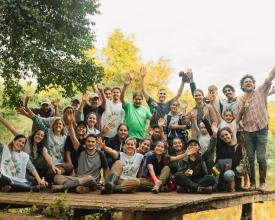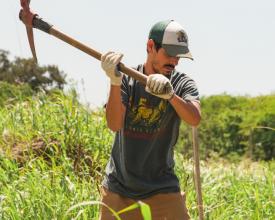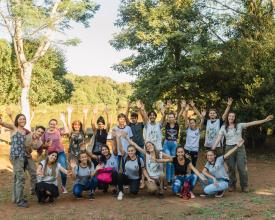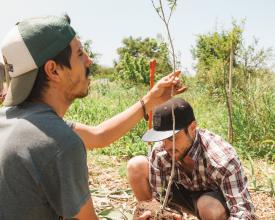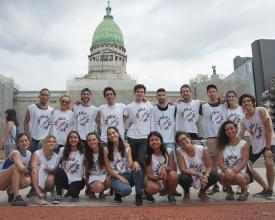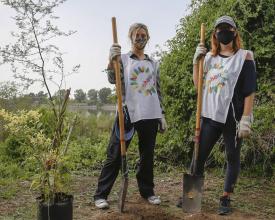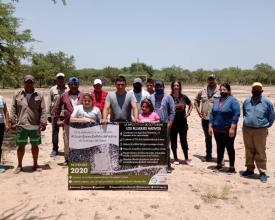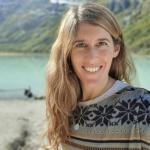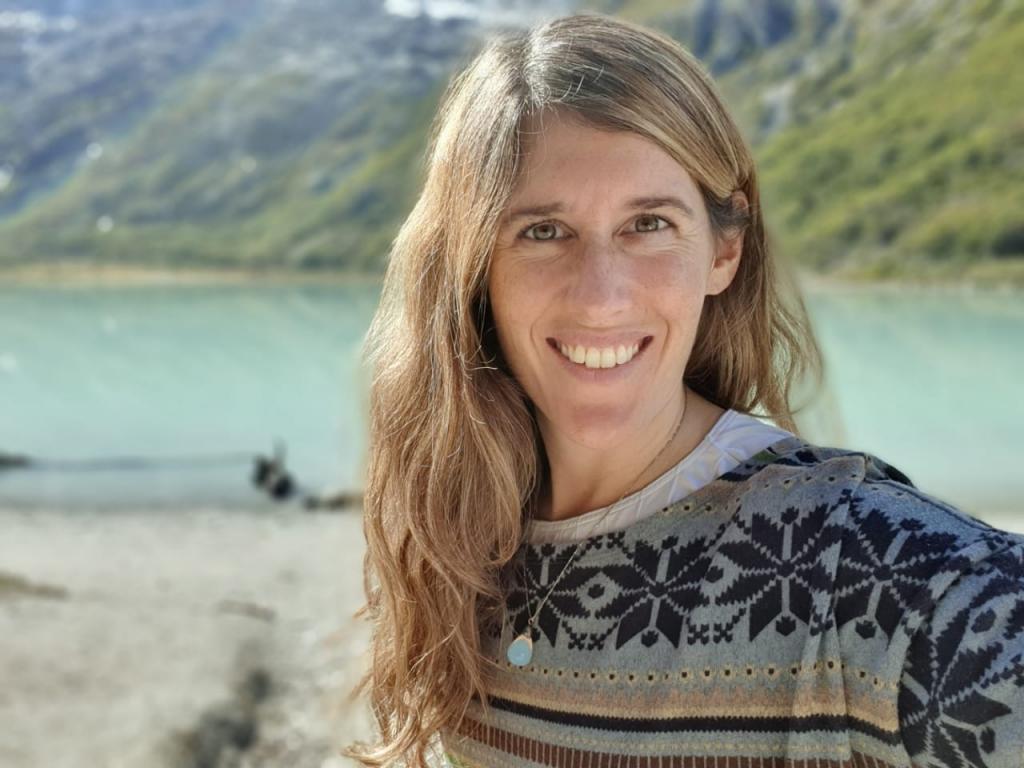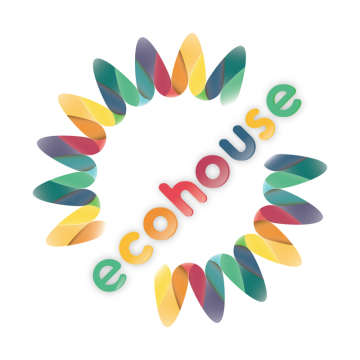
School for urban protected area conservation leaders
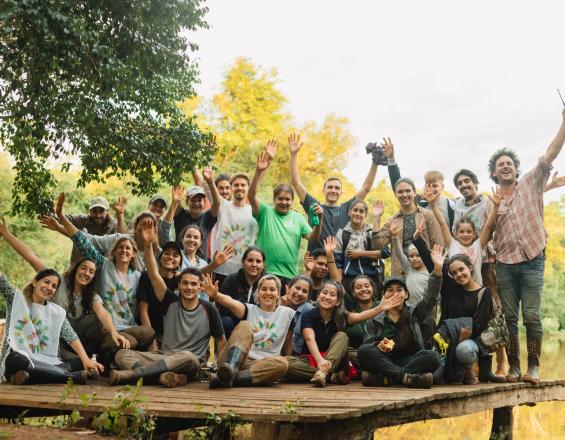
More than 6 years of experience in training young people in socio-environmental education, working in different regions, communities and problems, allowed us to see that education is the tool par excellence for transformation. In this project we trained young people in ecological restoration and conservation of the area near the Urban Nature Reserve "El Corredor", in San Miguel, province of Buenos Aires, with the aim of increasing citizen participation in conservation tasks, promoting the care of the space, multiplying natural protected areas, and making visible their benefits for the health of people and the environment. This reserve was selected because its creation was possible thanks to the involvement of the community, since it used to be an open-air garbage dump that was recovered by the people and declared a municipal reserve.
Context
Challenges addressed
- Achieve strong community involvement, increasing citizen participation.
- Identify and train restoration and conservation referents.
- Restore the area and achieve a substantial improvement in biological terms.
- Mitigate the effects of climate change
- Achieve political support and willingness to act for the protection of natural areas
- Inspire other communities to replicate the project and restore their natural areas.
Location
Process
Summary of the process
By integrating education, restoration of natural areas and working together with local communities, we strengthen regional economies and the quality of life of communities, promote biodiversity conservation, create opportunities for young people and empower civil society organizations. The training of restoration leaders from their own community is a perfect example of the interaction of these 3 axes, since it will be these same people who will carry out the ecological restoration projects and revaluation of their own habitat, in addition to continuing with the conservation tasks of the existing sites.
Building Blocks
Socio-environmental education within the framework of the decade of ecosystem restoration
Since 2016, we have been working on a daily basis, providing free training workshops on different environmental topics and issues to students from both public and private institutions at all levels, using formal, non-formal and informal education in the country. We understand that in order to conserve natural resources and achieve sustainable development, it is necessary to include environmental issues in the curricular agenda, so that young people get involved and build a healthier and fairer future.
Some of the workshops are on biodiversity, climate crisis, 3Rs, ecosystem services and more, alternating between theoretical blocks and practical group activities.
Enabling factors
Education is the basis for development. In order to promote sustainable development, it is of vital importance to provide quality education that takes into account social, economic and environmental aspects, with the aim of forming responsible citizens, architects of a fair world for all the species that inhabit it. By working in socio-environmental education projects for the formation of leaders, we change the reality of the entire local community regardless of age, origin, religion, gender identity, or any other particular aspect.
Lesson learned
The work in socio-environmental education is a fundamental axis that transversally crosses the reality of the communities. In recent years we have noticed a very positive response to the contents provided, having evolved the education program "Conscious Schools" of Eco House in the launching of the "Network of Schools for Sustainable Development", inaugurated in 2021. The growing interest on the part of society was reflected in the recent approval of the National Environmental Education Law and in the approval of the Yolanda Law, which indicates mandatory environmental education for public officials.
Restoration of sites degraded by land use change through reforestation with native species.
Native plant communities have a greater capacity to adapt to climate change thanks to their inter-specific interactions and their close relationship with native fauna. This means that in order to restore degraded areas, it is always advisable to use native species in order to ensure the success of the action over time. The restoration of spaces through reforestation with native species represents one of the cornerstones of our project, not only for the multiple environmental benefits, but also for the learning and results in social and cultural terms.
Enabling factors
Native species represent the best solution when it comes to reforesting degraded areas, as they promote interactions between fauna and flora and benefit society through the revitalization of the region's natural and cultural heritage.
Lesson learned
We have seen that reforestation with native species generates great interest in society, since at first, the species used are unknown, because contact with them has been lost, being supplanted by exotic species such as pines and cedars. However, as people begin to get to know these native species, they discover and marvel at their beauty. In the same way, restoring natural areas with native species fosters a cultural connection with the local community, as ancestral knowledge, native practices and local values are revalued. The demand for new available and protected natural areas has grown enormously. In 2014, the Argentine Network of Private Nature Reserves was created, and there are currently 200 such reserves throughout the country, totaling 770,000 protected hectares.
Integration of the local community in the activities developed for the sustainability of this and future projects.
It is necessary to be able to integrate the local community in all planning, execution and monitoring of the projects to be carried out in their territory, since this way it is possible to promote sustainability through education and empowerment of the population. The community participates by attending training sessions, offering and providing their own content (such as yoga classes in the reserve, painting activities on local flora and fauna, musical bands with open calls, sustainable fairs) and participating in all events organized in the reserve.
Enabling factors
Working together with the local community is a fundamental pillar for detecting local needs, evaluating action alternatives and using the tools with which the population is familiar and can capitalize more efficiently. It is necessary to work in the territory with practices that are adapted and familiar to those who will implement them, and to empower those who live in the territory and have knowledge and cultures specific to the area to be restored.
Lesson learned
In the various projects executed by Eco House, we have been able to verify that by working with local communities and involving them in the development and implementation of the various restoration projects, we have been able to achieve instances of integral growth. This means that all the actors involved in the project can learn from their knowledge and experiences, so that an exponential enrichment is achieved. In addition, getting the community itself to take ownership of a project that it understands as constructive and productive is the ideal way for them to protect it and give it continuity.
Impacts
Increasing citizen participation in conservation tasks not only contributes to natural areas, but also fosters an increase in biodiversity and the quality and quantity of ecosystem services provided by these areas, while strengthening the links between people and nature. In this project, protected areas provide the necessary space to carry out these actions. The neighbors who are involved on a daily basis are the beneficiaries of the training and will be the new leaders of the community groups, who work voluntarily to restore the ecosystems.
Beneficiaries
- The local community
- Native fauna and flora
- Municipalities and communities bordering the Reconquista River Basin
Sustainable Development Goals
Story
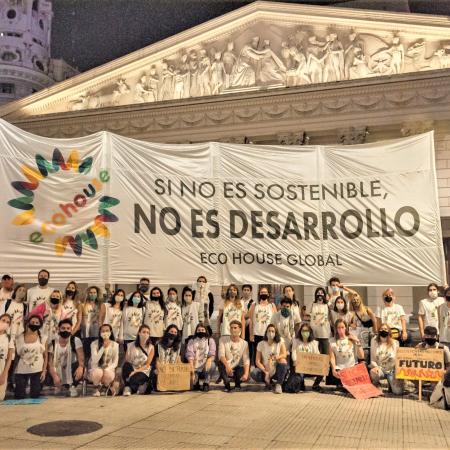
Eco House began with a young man who as a child felt a great admiration for characters such as Hercules, Superman, Batman, Spiderman and Goku. Over the years, he learned that the feats of these superheroes were not achieved by their supernatural powers, but that what really mattered were their virtues and values. Peace, love, temperance, justice, courage, solidarity, empathy, sacrifice, hope, trust, honesty, sense of humor. He learned that these qualities were not imaginary, but that one had to work hard to acquire them. One day, this young man decided that he was going to give his time to change the world, or at least a little bit of it. This is how Eco House was born, a non-profit organization where a Hero is anyone who tries to make the world a better place. Today, after 5 years since its foundation, Eco House is the civil association with more volunteers in Argentina, with 5 active branches in the country, recognized as a UN Youth Leader and co-founder of Alianza por el Clima, among many other achievements, demonstrating that with will, values and perseverance it is possible to change reality and be necessary participants of a better world.

